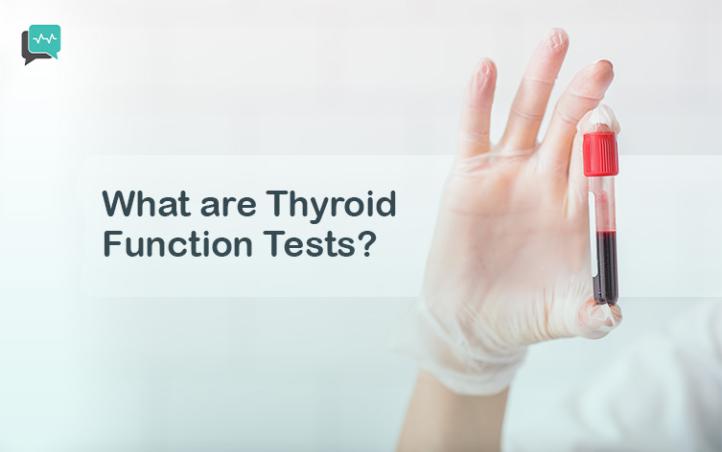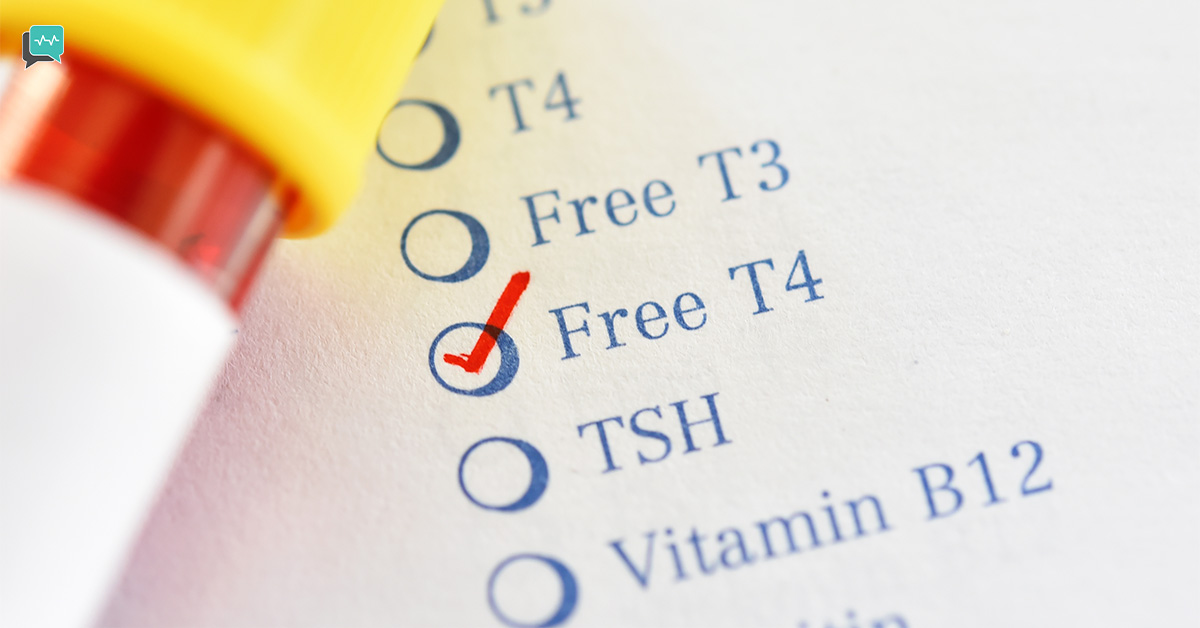What are Thyroid Function Tests?

What are Thyroid Function Tests?
Thyroid Function Tests (TFTs) are the first tests your health care provider will recommend if they think there is an issue with your thyroid. Most TFTs are blood tests – just like the ones typically done during an adult’s annual physical exam. If your thyroid function tests are abnormal, your provider will follow up with other tests such as antibody tests to find out why your thyroid is not functioning properly.
What do thyroid function tests measure?
TFTs measure the levels of several hormones in the bloodstream.
The thyroid itself produces two very important hormones –T3 (triiodothyronine) and T4 (thyroxine), which it releases into the bloodstream. Ultimately, most T3 is converted into the more usable T4.
- If the thyroid produces too much thyroid hormone, the resulting condition is called hyperthyroidism.
- If the thyroid produces too little thyroid hormone, the resulting condition is called hypothyroidism.
Although not produced by the thyroid, a third hormone called TSH (Thyroid Stimulating Hormone) plays an important role in regulating thyroid hormone levels. TSH is produced by the pituitary gland, located just below the brain, and is responsible for directing – or ‘stimulating’ – the thyroid to make T3 and T4.
- When there is too little T3/T4 in the bloodstream, the pituitary gland releases TSH.
- TSH stimulates the thyroid to produce more T3 and T4.
- When there is enough T3/T4 in the bloodstream, it stops releasing TSH.
- T4 is sent into cells throughout the body.
- This results in a lower level of T4 in the bloodstream.
- The pituitary gland releases more TSH so that the thyroid will produce more T3 and T4.
This cycle is repeated over and over and over throughout our lifetime.
(For more information about what thyroid hormones do, and what symptoms thyroid disease can cause, read Link To Other Article.)
The tests:
Thyroid function tests can be ordered individually or as part of a complete panel
TSH:
TSH is usually the first test ordered if a thyroid function issue is suspected. If an abnormal result is found, other thyroid function tests may be ordered.
- An elevated TSH level indicates hypothyroidism. This is because the pituitary gland has to release extra TSH to help stimulate the thyroid’s production of thyroid hormone.
- A decreased TSH level indicates hyperthyroidism. When the thyroid is already producing excess amounts of thyroid hormone, there is less need for stimulation from TSH.

Free T4:
After being released into the bloodstream, most thyroid hormone binds to molecules of protein and isn’t immediately used. The rest enters cells in order to assist with our metabolism. This unbound T3 and T4 are called “Free T3” and “Free T4”. As the body uses up free T3 and T4, protein-bound T3 and T4 are released from the protein and become “free”.
Free T4 measures the amount of T4 that is not bound to protein and is available for immediate use.
- Low levels of T4 indicate hypothyroidism. The thyroid has not produced enough.
- High levels of T4 indicate hyperthyroidism. The thyroid has produced too much.
Total T4:
Measures Free T4 plus T4 that is bound to proteins.
T3:
As with T4, elevated levels of T3 indicate hyperthyroidism. T3 is less useful as an indicator of hypothyroidism.
The following chart shows the relationship between thyroid function and blood test results:
| Hyperthyroidism | Hypothyroidism | Normal thyroid | |
| TSH level: | Low | High | Normal |
| T4 level: | High | Low | Normal |
What are the most common causes of hypo and hyper-thyroidism?
The most common reason for hypothyroidism is an autoimmune condition called Hashimoto disease (also known as Hashimoto thyroiditis or chronic lymphocytic thyroiditis). In Hashimoto disease, the immune system produces antibodies that destroy healthy thyroid tissue. As a result, the thyroid is unable to produce enough thyroid hormone. Blood tests look for antibodies called:
- Anti-thyroid peroxidase antibodies (TPO ab)
- Anti-thyroglobulin antibodies (TG ab)

The most common reason for hyperthyroidism is another autoimmune condition, called Graves disease. In Graves’ disease, rather than destroy thyroid tissue, the antibodies stimulate the thyroid to overproduce thyroid hormone. Blood tests look for the presence of:
- Thyrotropin receptor antibodies (TRAb)
- Thyroid stimulating immunoglobulins (TSI)
Hyperthyroid symptoms may temporarily occur from inflammation of the thyroid gland (called thyroiditis). The test for this temporary inflammation is called Thyroglobulin.
Do thyroid function tests require special preparation?
No special preparation is required, but it is important to let your health care provider know about any medicines or supplements you take. Some medications and supplements can affect the result of the tests, and your provider might substitute a different test or if necessary, have you stop the medication temporarily. Some medications and supplements that can affect thyroid function tests are:
- Estrogen
- Birth control pills containing estrogen
- Tamoxifen
- Heroin (and methadone)
- Anabolic steroids
- Glucocorticoids
- Levodopa
- Biotin
- Amphetamines
- Amiodorone
- Iodine-containing contrast given before imaging studies (such as CT scans).

It can be easy to mistakenly attribute some of the symptoms of thyroid dysfunction to factors such as not getting enough sleep or enough exercise, when in fact you have a thyroid condition. Thyroid function tests are widely available, take only a few minutes to perform, and provide information that can help your health care provider prescribe treatment that will leave you healthier and feeling better.